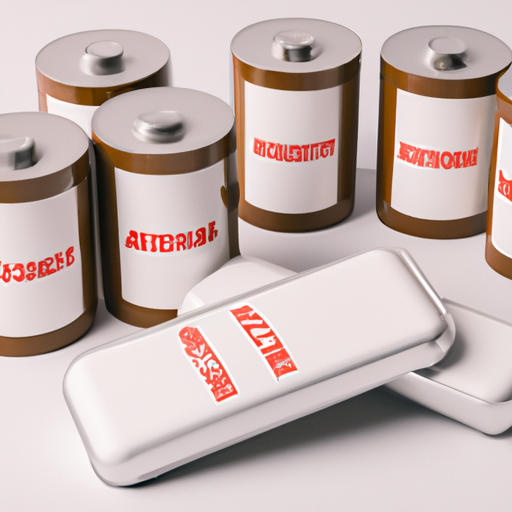Application Development in Battery Products for BR-1225/HCN: Key Technologies and Success Stories
Developing applications for battery products like the BR-1225/HCN, a lithium coin cell battery, involves leveraging several key technologies and methodologies. Below are critical aspects and notable success stories related to the application development of such battery products.
Key Technologies
| 1. Battery Management Systems (BMS) | |
| 2. Energy Density Optimization | |
| 3. Smart Battery Technology | |
| 4. Sustainable Practices | |
| 5. Miniaturization and Packaging | |
| 1. Wearable Technology | |
| 2. Medical Devices | |
| 3. Smart Home Devices | |
| 4. Consumer Electronics | |
| 5. Automotive Applications | |
Success Stories
Conclusion

The development of applications for battery products like the BR-1225/HCN involves a combination of advanced technologies, innovative design, and a focus on sustainability. Success stories across various industries highlight the versatility and reliability of these batteries, making them a critical component in the evolution of modern electronic devices. As technology continues to advance, further improvements in battery performance and application integration are expected, paving the way for new and exciting developments in the field.
Future Directions
| Solid-State Batteries: Research into solid-state technology could lead to batteries with higher energy densities and improved safety profiles.Solid-State Batteries: Research into solid-state technology could lead to batteries with higher energy densities and improved safety profiles. |
| AI-Driven Battery Management: The integration of artificial intelligence in BMS could optimize battery usage patterns and extend battery life.AI-Driven Battery Management: The integration of artificial intelligence in BMS could optimize battery usage patterns and extend battery life. |
| Global Standards for Sustainability: As environmental concerns grow, the establishment of global standards for battery recycling and sustainability practices will become increasingly important.Global Standards for Sustainability: As environmental concerns grow, the establishment of global standards for battery recycling and sustainability practices will become increasingly important. |
These advancements will not only improve the performance of batteries like the BR-1225/HCN but also contribute to a more sustainable and efficient future in battery technology.
Application Development in Battery Products for BR-1225/HCN: Key Technologies and Success Stories
Developing applications for battery products like the BR-1225/HCN, a lithium coin cell battery, involves leveraging several key technologies and methodologies. Below are critical aspects and notable success stories related to the application development of such battery products.
Key Technologies
| 1. Battery Management Systems (BMS) | |
| 2. Energy Density Optimization | |
| 3. Smart Battery Technology | |
| 4. Sustainable Practices | |
| 5. Miniaturization and Packaging | |
| 1. Wearable Technology | |
| 2. Medical Devices | |
| 3. Smart Home Devices | |
| 4. Consumer Electronics | |
| 5. Automotive Applications | |
Success Stories
Conclusion

The development of applications for battery products like the BR-1225/HCN involves a combination of advanced technologies, innovative design, and a focus on sustainability. Success stories across various industries highlight the versatility and reliability of these batteries, making them a critical component in the evolution of modern electronic devices. As technology continues to advance, further improvements in battery performance and application integration are expected, paving the way for new and exciting developments in the field.
Future Directions
| Solid-State Batteries: Research into solid-state technology could lead to batteries with higher energy densities and improved safety profiles.Solid-State Batteries: Research into solid-state technology could lead to batteries with higher energy densities and improved safety profiles. |
| AI-Driven Battery Management: The integration of artificial intelligence in BMS could optimize battery usage patterns and extend battery life.AI-Driven Battery Management: The integration of artificial intelligence in BMS could optimize battery usage patterns and extend battery life. |
| Global Standards for Sustainability: As environmental concerns grow, the establishment of global standards for battery recycling and sustainability practices will become increasingly important.Global Standards for Sustainability: As environmental concerns grow, the establishment of global standards for battery recycling and sustainability practices will become increasingly important. |
These advancements will not only improve the performance of batteries like the BR-1225/HCN but also contribute to a more sustainable and efficient future in battery technology.













